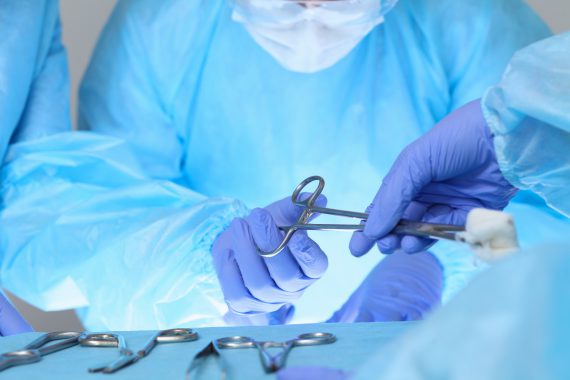More than 50 new surgical hubs are being funded to help reduce waiting times and cut Covid backlogs, the Government has announced.
Health and social care secretary Steve Barclay said it will mean at least 100 more operating theatres and 1,000 extra beds in England.
Backed by £1.5bn in funding, the goals is for the hubs to deliver over 200,000 extra procedures in 2022-23, more than 700,000 extra procedures in 2023-24, and one million extra procedures by 2024-25, the Department of Health announcement said.
They will focus on ‘high volume, low complexity’ surgery particularly in ophthalmology, general surgery, trauma and orthopaedics (including spinal surgery), gynaecology, ear nose and throat, and urology.
They will be based in existing hospital sites and reduce waiting times for operations such as cataract surgeries and hip replacements with a mixture of outpatient and admitted procedures.
Because the hubs are separated from emergency services, surgical beds are kept free for patients needing planned operations, which cuts the risk of short-notice cancellations and improves infection control, the DHSC said.
The location of 20 new or expanded hubs has already been confirmed with further bids to be considered over the coming weeks and months.
It adds to the 91 surgical hubs that have already been opened, said DHSC including at
Moorfields Eye Hospital as well as in London, Oxford and Lincolnshire.
Mr Barclay said: ‘In order to bust the Covid backlogs and keep pace with future demands, we can’t simply have business as usual.
‘Surgical hubs are a really tangible example of how we are already innovating and expanding capacity to fill surgical gaps right across the country, to boost the number of operations and reduce waiting times for vital procedures.’
NHS chief executive, Amanda Pritchard, added: ‘Surgical hubs are a vital part of plans to recover elective services across England and these new sites will be a welcome boost in helping us to further tackle the covid-19 backlogs that have inevitably built up over the pandemic.’
Figures show the number of people waiting for more than two years for elective care – the focus in the first phase of the elective recovery plan – fell from 22,500 at the start of the year to fewer than 200.
But the latest numbers also show the overall waiting list has grown again to 6.8 million people.
Pulse October survey
Take our July 2025 survey to potentially win £1.000 worth of tokens















And where are they going to get the staff from?
Hospitals generally haven’t even recovered to pre-Covid levels yet: perhaps they need to walk before they start talking about running?
One can feel a nightingale hospital situation coming on.Agreed DT where are the staff to staff these hubs.
They’re going to bust it and boost it.
Backlog bashing bonanza.
The hospital pathway – backed and bolstered. Boom. Tariffs and defensive medicine = waste and inefficiency.
Keep running after your tail and the public wants and demands. You cannot win.
Covid isn’t finished with you you know.
And watch the referrals escalate in a winter of discontent.
And watch them try and “import” the staff with dirty handshakes and ship them off to the never-ever-land.